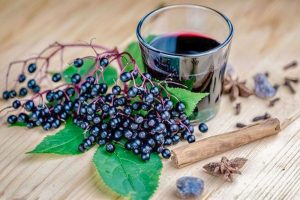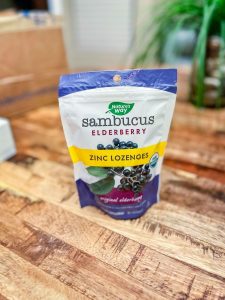What is an Elderberry?
By Lisa Nicklanovich; courtesy photos

There are many reported health benefits of cooked elderberries, although they are toxic in raw form. Not only are they nutritious, but they may also help address cold and flu symptoms, support heart health and fight inflammation and infections, among other benefits.
Elderberry products have been in high demand recently. For a time, they were impossible to find, whether one was looking for elderberry syrup, gummies or juice.
More than any other berry, elderberries have the highest concentrations of antioxidants as well as the vitamins C, E, and A, which give a boost to the immune system. Elderberry is a nutritious and delicious little berry with a lot of history.
Black elderberry, genus name Sambucus nigra, has been used in traditional folk medicine for generations for its therapeutic qualities. Hippocrates, known as the father of medicine, called elderberries his “medicine chest” in 400 B.C.
It’s important to note that raw elderberries are toxic, and they must be heated to remove their toxic compounds before they can be consumed. Products like syrup, gummies, powders, tablets, lozenges, drinks and teas have all been processed for consumption.

These lozenges have the health benefits from elderberry and zinc to improve the immune system.
Elderberries have been used for centuries to make wines, tinctures, jams and skincare products. Studies are showing elderberries have antiviral properties that prevent or decrease the severity of infections, such as flu and cold.
Black elderberries, which get their deep purple color from the antioxidants they contain, have anti-inflammatory properties and are known to have good effects on the heart and blood vessels. The studies that have been done are suggesting that the antioxidants in elderberries reduce bad cholesterol levels and the risk of heart diseases.
Elderberry syrup can be taken directly or drizzled into any beverage. Swirled into yogurt, oats, smoothies, marinades, vinaigrettes or baked goods, elderberry syrup has unlimited potential in the kitchen. Check the label for the amount of sugar and, if concerned, look for sugar-free versions.
For more information on the elderberry, visit: www.healthline.com/nutrition/elderberry#bottom-line. For elderberry products and recipes, visit www.samucolusa.com, which has been making elderberry products for 30 years.